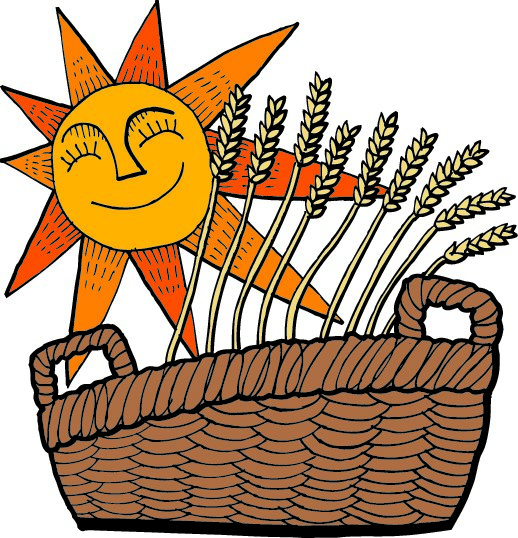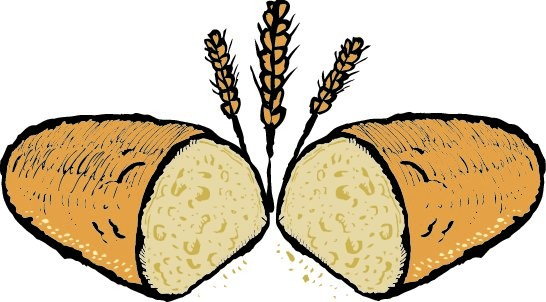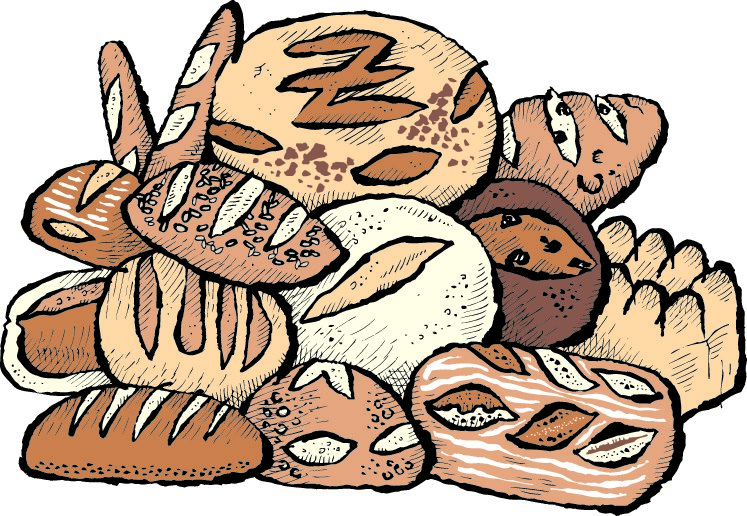While traditional stone milling is far removed from American daily life, as we know it, we still get to enjoy sayings around the water- or wind-powered craft, that were coined during a period when such milling was central to our lives and communities. Today we may know what these idioms are communicating but few of us understand the actual reference from which they came.

Listed below are some of the more common mill sayings and proverbs, together with an explanation of their point of origin:
First come, first served ~ This was the law for millers in many countries. Because it could take days for a farmer to have his grist ground, the law was designed to prevent impatient customers (or those receiving special treatment from the miller) from queue jumping.
Grist for one’s mill ~ Since wheat and corn are ground by ‘teeth,’ the grinding stones ‘chew’ the grist into flour; thus to ‘chew’ over something became a thought or idea to ponder.
The daily grind ~ The repetitive nature of milling led to the concept of ‘the daily (same old) grind.’
Run of the mill ~ The ordinary, daily grind.
Keep your nose to the grindstone ~ If set incorrectly, millstones could grind too hot and the flour would become cooked, emitting a burning smell. Occasionally, flour would burst into flames. The miller kept his ‘nose to the grindstone’ to detect the temperature and condition of the meal—and because most stone mills were made of wood, they could (and frequently did) burn to the ground in a matter of minutes.
Rule of thumb ~ To test the quality and grind of the flour, the miller would take a pinch of it between his thumb and finger. If too coarse, the flour would be ground again.
Put your shoulder to the wheel ~ When a miller had to turn a windmill into the wind, he ‘put his shoulder to the wheel’ by pushing the wheel at the bottom of the mill’s tail pole. Some tail poles had a yoke for the miller’s shoulder. Some millers used a horse. This saying is now taken to mean ‘make an effort.’
Three sheets to the wind ~ A (four-sailed) windmill with only three of its sails covered in ‘sheets’ of canvas will turn clumsily because it is off balance. Thus, the term is applied to drunks.
Fair to middling ~ The quality of ground meal would be fair, middling, or fine. To be ‘fair to middling’ is to be below one’s best.

Millstone round your neck ~ Millstones are very heavy and a millstone around your neck is a problem that prevents you from doing what you want to do.
Put through the mill ~ means to be exposed to hardship or rough treatment, just like being ground in a mill between stones.
Show your metal ~ Millstones often needed to be dressed (re-carved). When a miller hired an itinerant dresser, he could tell whether the man was experienced by noting the slivers of metal (thrown off from his carving tools) embedded in his hands. A variant of ‘show your mettle.’
Take your turn ~ To ‘take your turn’ is to be the next person to have corn or wheat ground by the turning of the millstones.
All is grist for the mill ~ meaning everything can be made useful, or be a source of profit.

And for a few lesser-known mill-related proverbs:
-
the mills of God grind slowly, yet they grind exceedingly small (Retribution may be a long time in coming, but it cannot be avoided)
-
much water goes by the mill that the miller knows not of (Many things are stolen or go astray without the knowledge of the person affected)
-
the mill cannot grind with the water that is past (time lost cannot be recalled, seize the day, there’s no time like the present)
By Lee Vedder
What’s next at the Bakehouse with freshly milled whole-grain flour?
We’re looking forward to introducing many new Bakehouse breads and sweet stuff made with freshly milled whole grains this year. At the end of next week, look for updated versions of our Funky Chunky cookies, blueberry muffin, and Volkornbrot, as well as new Orange & Date Scones and Michigan Double Cookies. And stay tuned for more to come—our list of ideas for new and improved breads is a page long!
After a long, established career as a Ph.D. art history scholar and art museum curator, Lee, a Michigan native, came to the Bakehouse in 2017 eager to pursue her passion for artisanal baking and to apply her love of history, research, writing, and editing in a new exciting arena. Her first turn at the Bakehouse was as a day pastry baker. She then moved on to retail sales in the Bakeshop, followed by joining the Marketing Team and becoming the Bakehouse’s designated culinary historian. In addition to her retail sales and marketing work, she’s a member of the Bakehouse’s Grain Commission, co-author and editor of the Bakehouse's series of cookbooklets, and a regular contributor to the BAKE! Blog and Zingerman’s Newsletter, where she explores the culinary, cultural, and social history and evolution of the Bakehouse’s artisan baked goods.

My mom always used to say “cause wheat’s not rye” whenever we would ask her WHY? Any ideas on origin or meaning of this one? Thanks!
wonderful etymologies, thanks Lee
Can you please help with this quote from Ira Gershwins “One life to live” (from “Lady in the dark”)?
Hi Georg. Thanks for your patience while we dug into this a bit. Here’s what we’ve come up with… Metaphorically/figuratively speaking – we wear a millstone or albatross around our necks and put our noses to the grindstone. Millstones, in the milling process of say grain, are the large stones that pulverize, thereby symbolizing a heavy burden. A grindstone is the revolving stone that hones or polishes, so we put our noses to the grindstone, figuratively speaking, when we work hard. And the albatross/millstone around our necks symbolizes a burden of distress that hinders action. So, we would interpret the… Read more »